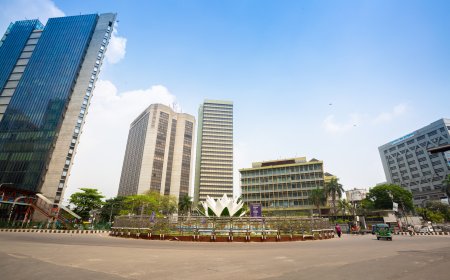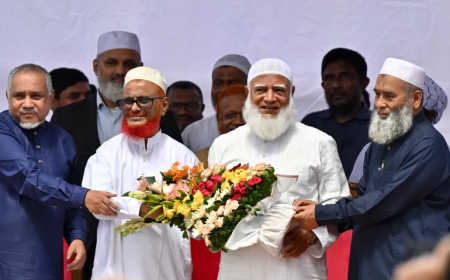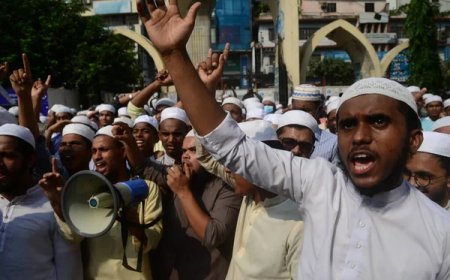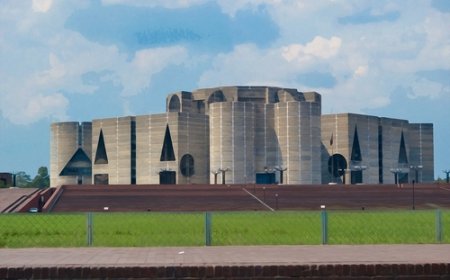When Reform Becomes Shortcut: NCP’s PR Gamble
Proportional representation sounds fair, but can lead to fragmentation and fracture of the polity. In the Bangladeshi context, it may deliver instability we don't need.

The Children of the Revolution
We are all proud of the young student leaders who ignited the July Revolution -- brave, articulate, and unafraid to stand up when the nation’s conscience had gone quiet. Many of them now form the backbone of the newly minted National Citizens Party (NCP), and they deserve credit for reawakening civic energy that had long been smothered by fear and fatigue.
But pride need not blind judgment. Because what we did not anticipate -- and what many of us now struggle to digest -- is that these same revolutionaries would mutate into yet another political party, chasing power through the same machinery they once denounced.
We thought they would evolve into an activist, non-partisan movement -- a civic conscience that would challenge corruption and authoritarianism across the spectrum, not compete for parliamentary seats. We imagined an organization of principle, not another faction with a logo and a slogan.
Instead, they have become a political party, and their first major policy push -- Proportional Representation (PR) -- reveals the depth of that transformation.
The Shortcut Disguised as Reform
The NCP’s call for proportional representation sounds noble. It promises fairness: that every vote should count, that small parties should get a voice, and that Bangladesh should be freed from the duopoly of the two dominant forces. In theory, that’s hard to oppose. In practice, it’s the oldest shortcut in modern politics -- the tool of the impatient and the strategy of the untested. PR is not a reform born of conviction; it’s a crutch for movements that can’t yet walk. It offers quick entry into parliament without building the field networks, loyalty, or discipline that real parties earn over decades.
History’s Graveyard of Proportional Dreams
Weimar Germany turned its parliament into a zoo of thirty parties; France’s Fourth Republic saw twenty-four governments in twelve years; Italy changed cabinets every eleven months for half a century; Israel still struggles with kingmaker chaos. The pattern is unmistakable: proportional representation doesn’t strengthen democracy -- it atomizes it.
The Mechanics of Breakdown
Fragmentation multiplies factions until no one can govern decisively. Minor parties become kingmakers, voters lose track of accountability, and extremist voices slip through the cracks. Meanwhile, MPs owe their loyalty to party bosses rather than citizens. It’s representation without responsibility -- a parliament without purpose.
The Law of Political Maturity
Real parties are not built on arithmetic. They are built on endurance. Every serious democratic movement has taken decades to mature before tasting power. The BJP, born as the Bharatiya Jana Sangh in 1951, re-emerged as the Bharatiya Janata Party in 1980, won just two seats in 1984, formed a coalition after seventeen years, and achieved an outright majority after thirty-four. The British Labour Party, founded in 1900, didn’t form a government until 1924 and didn’t dominate until 1945 -- forty-five years of patient growth. They didn’t rewrite electoral systems to gain power. They earned it the hard way -- by building it.
Why NCP’s Path Is the Wrong One
By embracing proportional representation, NCP is not reforming politics -- it’s retreating from the hard part of it. It’s trying to rewrite the rules before learning to play the game. And that betrays the very spirit of the movement that gave it birth. They had a rare chance to remain the country’s civic conscience -- a force that could speak truth to power without joining its ranks. Instead, they chose the easy path -- to become what they once opposed.
Earn Power, Don’t Engineer It
Proportional representation promises fairness but delivers fragmentation. It makes everyone represented and no one responsible. It replaces leadership with negotiation, and conviction with convenience. Democracy isn’t about how many voices fit in a room; it’s about whether anyone inside has the courage to decide. The BJP and Labour didn’t need shortcuts. They earned power through time, toil, and trust -- the only real currency in politics. NCP would do well to remember that revolutions succeed not when they become parties, but when they become principles that outlast them.
The Missing Virtue: Accountability Before Reform
Before we redesign the system, we must demand something simpler and more sacred -- accountability. Bangladesh’s crisis isn’t that votes don’t count; it’s that leaders don’t answer for what they do with them. Political parties here treat power as inheritance, not responsibility. Manifestos are marketing documents, not contracts. Internal democracy is fiction -- party hierarchies are built on loyalty, not merit.
The result is a political culture where failure has no consequence, and corruption has no expiry date. Proportional representation will not fix this. It will worsen it -- by scattering accountability across coalitions and committees until no one is ever to blame.
A real reform movement would first demand internal transparency: audited party finances, open candidate selection, leadership term limits, and performance reporting. These are the instruments of a mature democracy -- not tinkering with the vote-counting mechanism. Fair systems do not make fair politics; accountable leaders do. Until our political class accepts that power is a duty, not a trophy, every new formula -- however fair it sounds -- will rot in the same soil.
What's Your Reaction?



















































































